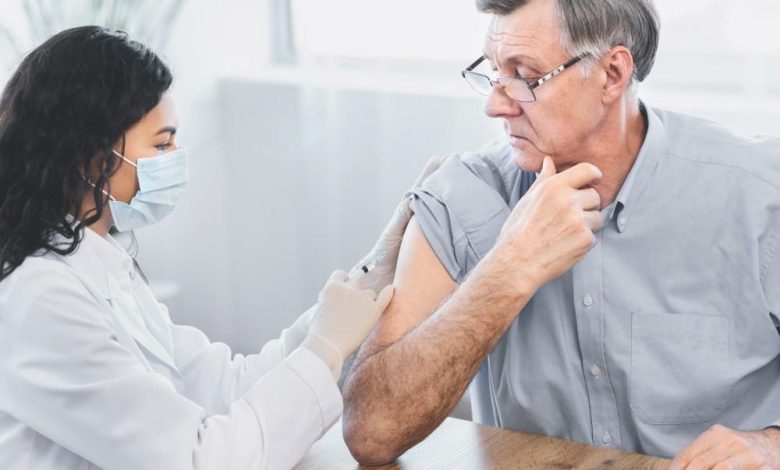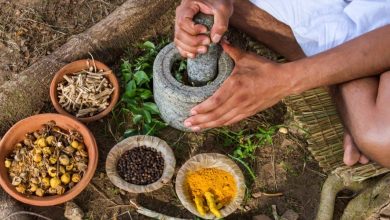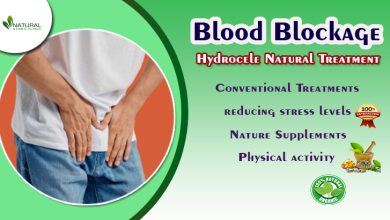Sexually Transmitted Infection: Essential Facts to Protecting Health

Get knowledge the essential facts about Sexually Transmitted Infection and how to protect your sexual health.
Sexually Transmitted Infection (STIs)
Sexually Transmitted Infection (STI) is a type of infection that spreads through sexual contact. It is important to be aware of the potential risks associated with engaging in sexual activity. There are some common STIs, such as human papillomavirus (HPV), herpes, chlamydia, gonorrhea, and syphilis. While there are treatments available for some of these infections, prevention should always be the goal. To protect yourself from acquiring an STI, it is essential to know the basics about these infections and practice safe sex.
Read Also: Avoid Wrong Dietary Habits: Learn How Healthy Eating Can Help
Sexually transmitted infection can have serious consequences if not treated properly or prevented in the first place. It is essential to understand the basics about these infections and practice safe sex in order to protect yourself from acquiring an STI. Natural remedies such as herbal teas and nutritional supplements may also help reduce discomfort associated with Hydrocele and promote overall wellness for those affected by this condition. Through understanding the risks associated with unprotected sex, following preventive measures such as using condoms and practicing mutual monogamy, you can reduce your risk of getting an STI while still enjoying consensual intimate activities.
Hydrocele
One common STI is hydrocele, which occurs when fluid builds up in the sac around one or both testicles. Symptoms may include discomfort in the groin area and swelling of the scrotum. In some cases, hydrocele may resolve on its own without medical treatment. However, if symptoms persist or become severe, it may require surgical intervention. Natural remedies such as herbal teas and nutritional supplements may also help reduce discomfort and promote wellness for those affected by hydrocele.
Prevention
To protect yourself from acquiring an STI, it is important to always use condoms during sexual activity. Additionally, practice mutual monogamy and abstain from sexual activity until both partners have tested negative for any sexually transmitted infection. Additionally, get tested regularly for STIs and discuss your results with your partners before engaging in any sexual activity.
Read Also: Excessive Production of Fluid in the Sac: What to Do When Notice
Common STIs and Their Symptoms
Sexually Transmitted Infection (STIs) are a common threat to people’s sexual health. Knowing the symptoms of STIs can help you protect yourself from contracting one. Common STIs may include human papillomavirus (HPV), chlamydia, gonorrhea, herpes simplex virus (HSV), and HIV/AIDS.
Human Papillomavirus (HPV)
Human papillomavirus is a sexually transmitted infection that spreads through contact with skin-to-skin genital contact with an infected partner. Common symptoms of HPV can include genital warts and rashes in the mouth or on the genitals. It can also cause changes in the cells of the cervix which may develop into cancer if left untreated.
Related Article; Natural Home Remedy To Shrink Hydrocele: Proven And Effective
Chlamydia
Chlamydia is a bacterial infection spread by sexual contact with someone who has an infection. It is one of the most common STIs among young adults. Symptoms can include burning sensation during urination, unusual discharge from the vagina or penis, pain during sex, itching in the genital area or swollen testicles in men.
Gonorrhea
Gonorrhea is another bacterial infection that spreads through sexual contact with an infected partner. It often has no symptoms but if left untreated can lead to serious complications such as pelvic inflammatory disease and infertility in women. Common symptoms of gonorrhea may include painful urination, vaginal bleeding between periods, lower abdominal pain and abnormal discharge from the vagina or penis.
Read Also: Malfunctioned Absorption of Fluid Warning Signs Should Not Ignore
Herpes Simplex Virus (HSV)
Herpes simplex virus is a viral infection that causes blisters on and around your genitals and anus. These blisters can break open causing pain, itching and tingling sensations as well as flu like symptoms such as fever and muscle ache. HSV is highly contagious even when there are no visible symptoms present so it’s important to practice safe sex practices at all times to reduce your risk of contracting it.
HIV/AIDS
HIV stands for Human Immunodeficiency Virus and AIDS stands for Acquired Immunodeficiency Syndrome caused by HIV virus which leads to a weaken immune system leaving us vulnerable to dangerous infections like cancerous tumors etc.. Common symptoms of HIV/AIDS may include body rash, fever, tiredness, night sweats, unexplained weight loss, swollen lymph nodes etc.. If you think you have any signs or symptoms of HIV/AIDS then it’s important to get tested right away as early diagnosis will allow you to Reduce Hydrocele Naturally before it progresses further into AIDS stage.
Ways to Reduce the Risk of Getting an STI
Sexually Transmitted Infection (STIs) are a major public health concern worldwide. According to the World Health Organization, more than one million new cases of STIs are reported each year. Thus, it is essential to take preventive measures to stay protected from such infections. While there is no sure-fire way to protect yourself from them, there are certain steps that can help reduce the risk.
Practice Safer Sex
Using condoms and other forms of contraception when engaging in sexual activities is one of the safest ways to protect yourself from getting an STI. Use a male condom or female condom every time you have vaginal, anal or oral sex. Properly use a latex condom when engaging in sexual activities with multiple partners. Do not engage in unprotected sex and never share syringes or needles with others.
Read Also: Overcoming Pain in the Scrotum: From Hesitation to Healing
Get Tested Regularly
Another way to reduce your risk of getting an STI is by getting tested regularly for common infections such as HIV/AIDS, chlamydia, gonorrhea and syphilis. If you suspect that you have been exposed to any infection, seek medical help right away so that appropriate treatment can be provided as soon as possible.
Avoid Touching Secretions From Others
It is also important to avoid contact with secretions from another person’s body such as semen, blood and saliva during sexual activity. The risk of transmission increases if these secretions come into contact with open wounds or mucous membranes such as those found in the mouth or genitals.
Practice Good Hygiene
Good hygiene habits are also important for reducing your risk of getting an STI. Wash your hands thoroughly before engaging in any kind of sexual activity and after using the toilet too. Avoid sharing towels and other personal items with others especially if they have symptoms of any infection like rashes or sores on their skin.
Go Natural With Hydrocele Treatment
Hydrocele is an accumulation of fluid around the testicles which can be caused by an underlying infection like chlamydia or gonorrhea which are both common STIs. Luckily, there are Hydrocele Home Remedies which include avoiding tight clothing and using herbal remedies like castor oil packs for relieving discomfort and swelling around the area affected by hydrocele infection.. Additionally, taking nutritional supplements may also help improve overall wellness and reduce the risk of getting another infection in future.
By following these preventive measures mentioned above, you can reduce your chances of getting an STI significantly while promoting Better Overall Health and Wellness too! There is no guarantee that these method will prevent all infections but it’s essential to take precautionary steps while engaging in any kind of sexual activity so that you remain safe at all times.
Read Also: Strategies to Soothe Inflammation of Testicles and Boost Health
Treatment Options for STIs
Sexually Transmitted Infection (STIs) are highly contagious and can cause serious health issues if left untreated. In order to protect your sexual health, it is important to understand the available treatments for STIs. Some common treatment options for STIs include antibiotics, antiviral medication, and natural remedies.
Antibiotics
The most commonly prescribed treatment for STIs is antibiotics. They destroy the bacteria which caused the infection, and help to reduce the symptoms of the infection. Common antibiotics used to treat STIs include amoxicillin, doxycycline, azithromycin, and cefixime.
Antiviral Medication
If an STI is caused by a virus such as herpes or HIV, antiviral medication will be used to treat it. Antiviral drugs work by blocking the replication of viruses in the body and reducing their ability to cause damage. Common antiviral drugs used to treat STIs include acyclovir, famciclovir, valacyclovir and tenofovir disoproxil fumarate tablets.
Natural Remedies
Hydrocele is one of the most common natural remedies used for treating STIs. Hydrocele has antiseptic properties that help to reduce irritation and inflammation associated with an STI infection. Other Natural Remedies for Hydrocele that can be used to treat an STI include garlic, tea tree oil, manuka honey, and nutritional supplements designed for wellness. In conclusion, there are several treatment options available for STIs including antibiotics, antiviral medication and natural remedies such as hydrocele. It is important that you seek medical advice from a qualified healthcare provider in order to determine which method of treatment is best suited for your particular condition. Additionally, make sure you take all necessary precautions such as using protection during sexual activity in order to protect yourself from contracting an STI.
Hydrocele
Sexually Transmitted Infection (STIs) are a serious health concern for people of all ages around the world. STIs can cause a wide range of symptoms, from minor sensations of discomfort to major health complications. Fortunately, there are many natural remedies and nutritional supplements available that can help protect your sexual health and reduce the risk of contracting an STI. One such solution is hydrocele, a condition in which fluid accumulates in the scrotum or testicles. This article will provide an overview of hydrocele causes, symptoms, and natural remedies for this condition.
Hydrocele?
Hydrocele is a condition caused by fluid buildup in the scrotum or testicles which can lead to swelling and discomfort if left untreated. Although it is not an STI itself, it’s still important for men to take precautions when engaging in sexual activity as this can reduce their risk of contracting other STIs which may contribute to developing hydrocele symptoms over time. Taking proactive measures such as dietary changes coupled with Nutritional Supplements for Wellness and relaxation techniques may help minimize symptoms associated with this condition while promoting overall sexual health too!
Natural Remedies for Hydroceles
There are several natural remedies available that may help reduce swelling associated with hydroceles and improve overall sexual health. These include: dietary changes such as increasing fiber intake; staying hydrated; taking nutritional supplements like zinc to boost immunity; practicing relaxation techniques such as yoga or meditation; avoiding activities that could aggravate the condition; wearing loose-fitting clothing; reducing stress levels; exercising regularly; practicing proper hygiene habits; and taking regular warm baths with Epsom salt added for extra relief from pain and swelling. Additionally, it’s important to get any infections treated promptly as these could contribute to developing hydroceles in some cases.
Read Also: Pressure Buildup at the Base of Penis: Solutions for Relieving
Nutritional Supplements for Wellness and Protection Against STIs
Sexually Transmitted Infection (STI) is a major cause of concern for many people, as it can have serious and long-lasting effects on physical and mental health. In order to protect oneself from the risks of STIs, it is important to understand the essential facts about them and take the necessary steps to safeguard one’s sexual health. One such way to do so is by taking nutritional supplements as part of an overall wellness plan. Nutritional supplements can provide essential vitamins, minerals, and amino acids that are necessary for prevention against certain types of STIs. For example, zinc has been found to have antibacterial properties that can help prevent the spread of some bacterial infections such as chlamydia. Vitamin E has been linked to reducing inflammation which is often present in many cases of STI infections.
In addition, Vitamin C may help fight yeast infections that can be caused by different types of bacteria. Taking a daily multivitamin can also ensure that one’s body has an adequate supply of all these nutrients which is crucial for protection against STIs. Hydrocele, which is an accumulation of fluid in the scrotum area that causes swelling and pain in men, can also be treated with nutritional supplements such as fish oil and Evening Primrose Oil (EPO). Fish oil contains omega-3 fatty acids which help reduce inflammation associated with hydrocele while EPO helps balance hormones in male bodies thus reducing symptoms related to hydrocele. In addition, natural remedies such as olive leaf extract have also been found to be useful in treating hydrocele due to its anti-inflammatory properties.
Read Also: Taking Action Against Sexual Abuse: What You Can Do to Help
However, it is important to seek medical advice before trying any natural remedy or nutritional supplement. One should also remember that taking nutritional supplements should not be seen as a substitute for practicing safe sex or getting tested regularly for STIs if engaging in any kind of sexual activity with multiple partners or those at risk. Nutritional supplements should only be taken alongside other preventative measures such as safe sex practices or regular testing for STIs since they do not offer full protection against them. Overall, taking nutritional supplements like Vitamins and Minerals can help improve one’s overall wellness and provide additional protection against some types of sexually transmitted infection and hydrocele. However, this should only be done alongside other preventive measures like practicing safe sex or getting tested regularly so as to ensure maximum protection from these infections.
Frequently Asked Questions
Can you get an STI from oral sex?
Engaging in oral sex poses a risk of STI transmission. Using barriers like dental dams and regular testing are effective preventive measures.
How often should one undergo STI screenings?
For sexually active individuals, annual screenings are recommended. Those with multiple partners or inconsistent condom use should consider more frequent testing.
Is there a cure for all STIs?
While some STIs are curable with antibiotics, others are manageable but not curable. Regular medical check-ups are crucial for effective management.
Can STIs affect individuals of any age?
Yes, STIs do not discriminate based on age. It’s essential for individuals of all ages to practice safe sex and undergo regular screenings.
What’s the role of vaccination in preventing STIs?
Vaccinations play a significant role in preventing certain STIs, such as HPV. Consult with healthcare professionals to determine suitable vaccination options.
How can one discuss STIs with a partner?
Open communication is key. Approach the conversation with empathy, honesty, and a focus on mutual well-being. Discussing STIs is a shared responsibility in maintaining a healthy relationship.




